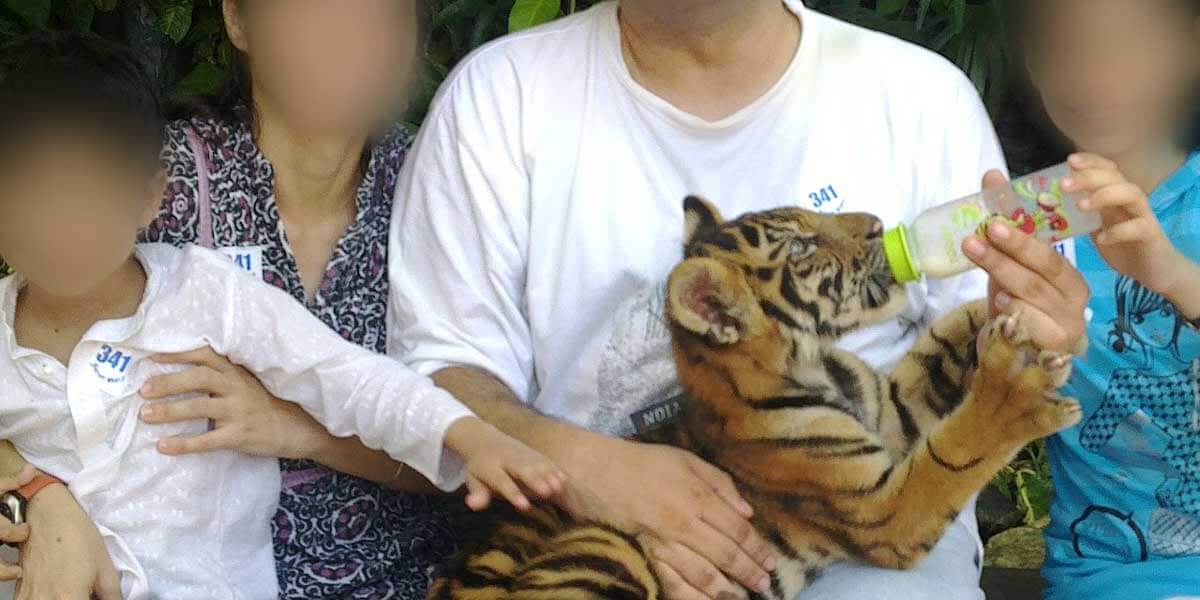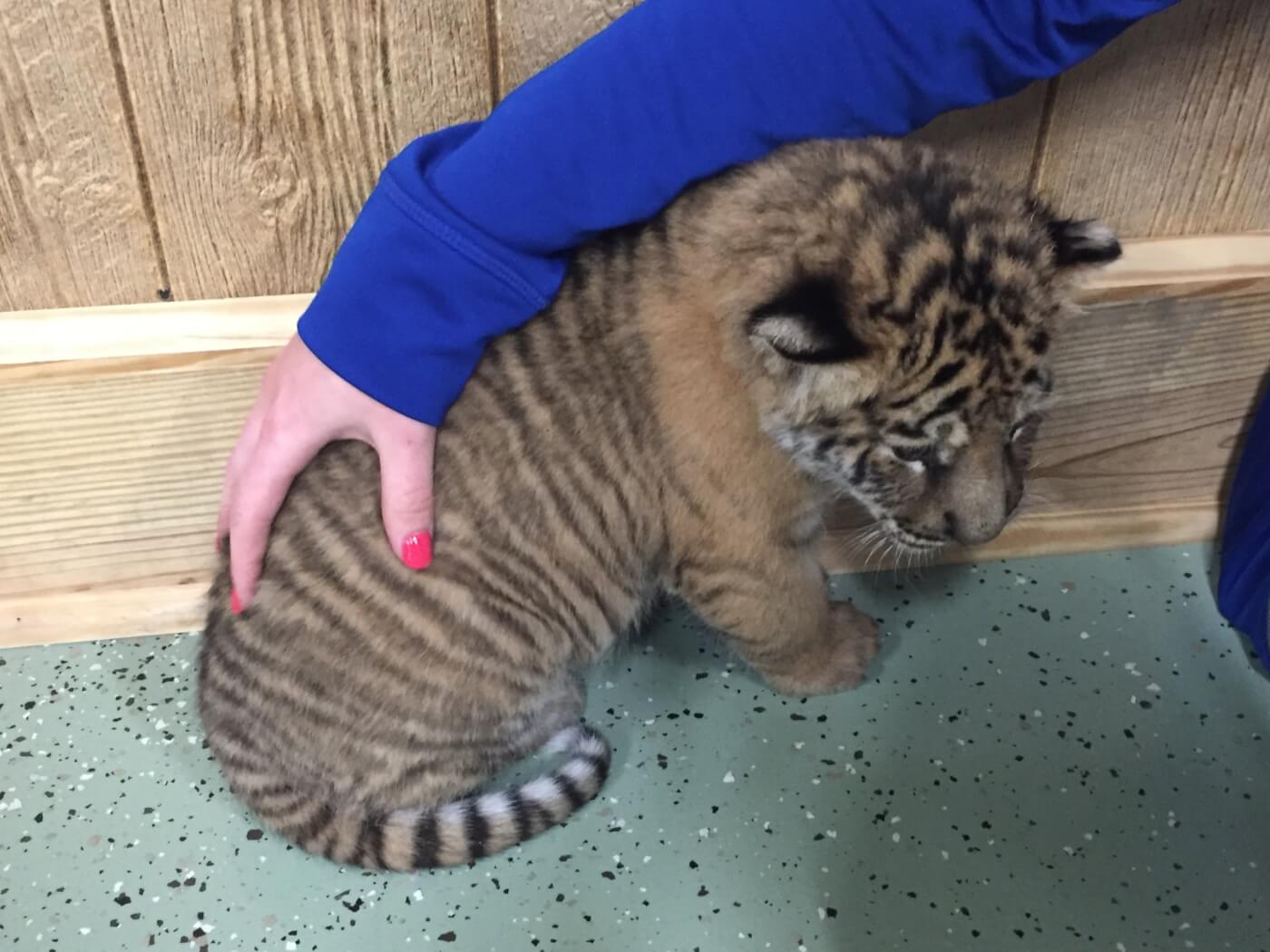PETA Cheers as Biden Signs ‘Big Cat Public Safety Act’ Into Law
A historic victory for animals used for entertainment has followed decades of hard work: On December 6th, the U.S. Senate passed the Big Cat Public Safety Act, championed by Carole and Howard Baskin of Big Cat Rescue and backed by PETA and our supporters. And now, President Joe Biden has signed the bill into law, prohibiting private ownership of big cats and banning public contact with them!

PETA’s Push to End the Big-Cat Cub-Petting Industry
Prior to the bill’s passage, PETA lawsuits had nearly annihilated the extremely cruel big-cat cub-petting industry by taking down the biggest players, including Jeff Lowe and many other Tiger King villains.
Our legal victory against Tim Stark and his roadside zoo, Wildlife in Need, established the precedent that, among other issues, separating big-cat cubs from their mothers prematurely and allowing the public to pet them violate the federal Endangered Species Act. PETA’s work ultimately resulted in the rescue of 75 big cats, many of whom were victims of the cub-petting trade.
With proper enforcement, the new law will serve as the final nail in the coffin for businesses exploiting sensitive big-cat cubs for profit. PETA is confident that the new law will take down the two remaining Tiger King villains: Bhagavan “Doc” Antle, who is already facing state and federal charges for wildlife trafficking, among other alleged crimes, and Mario Tabraue, who will no longer be able to cash in on the suffering of big-cat cubs and their mothers.
Other Animals Are Still Exploited in ‘Petting’ Encounters—but You Can Help Them
While the Big Cat Public Safety Act will protect big-cat cubs, dangerous “hands-on” encounters with other animals—such as bear cubs, lemurs, sloths, and otters—will continue. These activities are just as cruel as big-cat cub-petting encounters, and you should never support any business offering them.
Many shoddy facilities use buzzwords like “sanctuary” or “rescue” in their names to mislead consumers about the quality of care that animals receive. Sadly, these outfits are nothing more than breeders, dealers, and exhibitors exploiting the public’s goodwill and generosity.
Remember: The fundamental purpose of any legitimate animal sanctuary is to provide animals with safe, comfortable living conditions that give them as natural an existence as captivity allows. No reputable exotic-animal sanctuary allows any kind of “hands-on” photo op or encourages any other direct contact between animals and guests.


